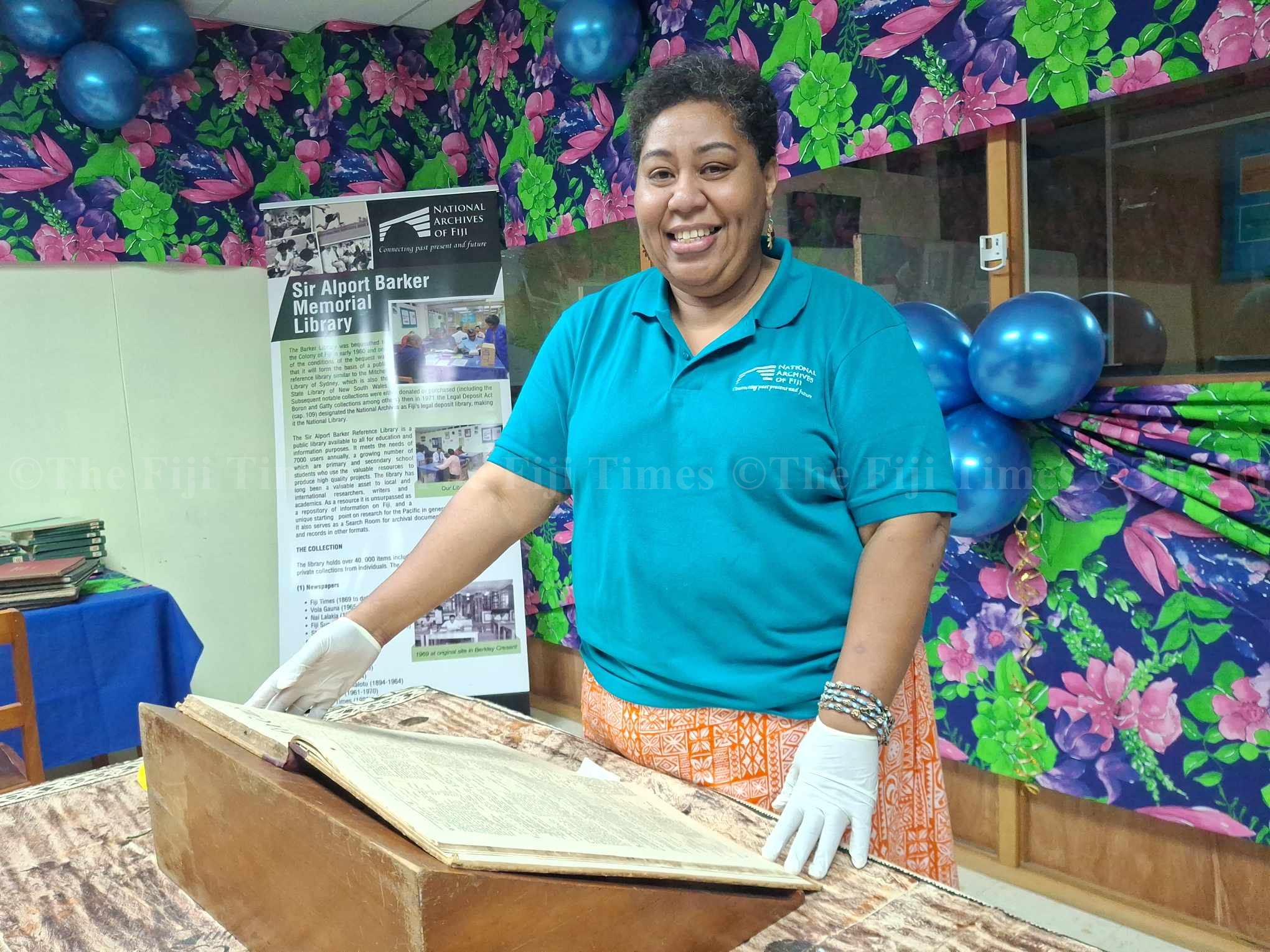LOSENA Tudreu is one of only five women archivists in the country.
Like most of her colleagues, she is highly qualified in experience, but she has also pursued and completed studies in Archives and Records Management at the Hong Kong University in 2017 and has a Post Graduate Diploma in Digital Information Management.
Observing International Archives Day this week, Ms Tudreu shared that becoming an archivist was not an obvious choice of career paths for her, but she found her calling in 1998 while researching a girmitiya timeline at the National Archives.
“I stumbled on to the archives in 1998 when I needed to do some internship,” she said. “One of my first tasks at the time was to do a timeline on the Indian indentured labour system which were records on girmitiya. I loved the research part of it.”
As much as she enjoyed it, in the absence of a job opening at the archives, she joined the Daily Post as a features writer until 2002 when she was told that a vacancy for an Archives Assistant was available.
“I applied and got through. After eight years I moved to the Department of Energy as an Assistant Information Officer. I kept going back to the Archives even when I was employed in another government department.
“In 2014, I got a call about an archivist position. I have stayed since and now I am the Senior Archivist looking after the Archives Advisory and Records Management Unit.”
That unit, she said, is also known as the “Heart of the Archives” because it is the repository for archival records.
Ms Tudreu said there were four units that worked closely together towards preservation of records. “All four units are led by women — Library, Digital Continuity Unit, Conservation and the Archives Advisory and Records Management Unit.”
What keeps her job exciting is the discovery of “new” information everyday.
“I get to handle records that laid the foundation for Fiji’s governments. Our founding documents in 1874, the Independence order. I get to read the conversations that led to decisions on the pathways our nation took, literally from birth until today.
“Everyday you can discover something new. Everyday as well we get to serve the public with their historical information needs. Can you imagine reading correspondences that were penned in 1879?”
From studying journalism to wanting to be a teacher and then a police officer at various stages of her life, Ms Tudreu says her job as an archivist allows her to work with people of all professions.
“Now I’m assisting the Fiji Police Force in their process strengthening program for records management.
“Being an archivist is not a first thought for anyone when you are thinking of work or a career. Most of us here seem to have developed that passion over time.
“Some challenges for us would be the limited resources we work with, the space as each year there is a new wave of transfers of records or requests, a small outfit.”
Ms Tudreu has been assisting efforts to create more awareness and provide training on the importance of records management in the civil service.
Records hold our truth, she said, and it’s important to get the correct versions of history especially for children.
“The one thing we don’t realise and often fail to see is that we use records everyday — we create them everyday. It’s maintaining that piece of paper, that document, that’s hard.
“I love my work. I can’t say I know everything that is kept here because everyday there is a piece of information that seems to find its way off the shelves.
“It’s rewarding to see the face of a researcher when they have discovered that key piece of information after sifting through archival materials — when they are able to connect the dots.”



